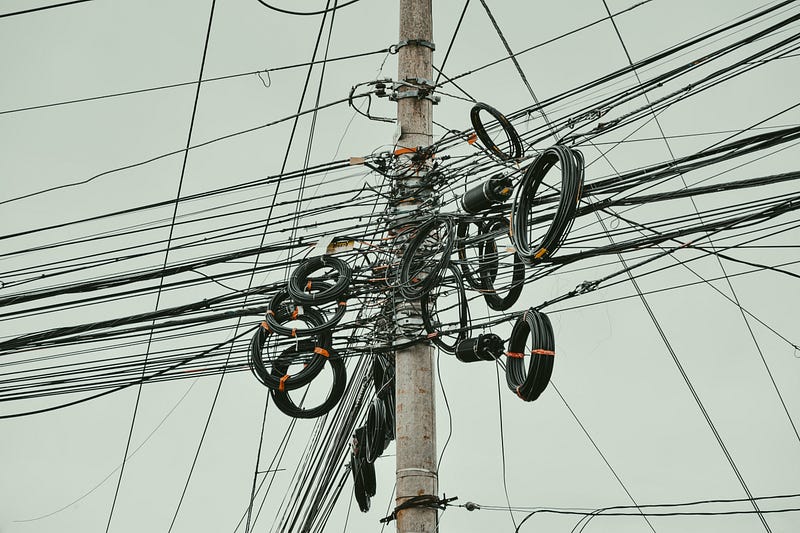Embracing the Chaos: Navigating Life with ADHD and Anxiety
Written on
Chapter 1: Accepting the Overwhelm
Living with the feeling of being overwhelmed is a part of my reality, and I’m learning to come to terms with that. It's essential to recognize that conditions like ADHD, anxiety, depression, PTSD, and autism spectrum disorders currently have no definitive "cure." While this may sound disheartening, it’s a truth we must face. However, it’s not all bleak—therapies and treatments have significantly improved for individuals like us. Even for those without specific mental health challenges, there is a growing openness toward therapy, self-care, and understanding mental health in general.
Though a remedy for the more challenging symptoms would be welcome—those that affect daily life consistently—the best approach is to confront our circumstances, seek understanding, and manage our symptoms as they arise. I’m still figuring out how to do this while keeping my identity intact. This journey is ongoing, but I’m starting to embrace it.
ADHD, Metaphors, and Self-Expression
I’ve always been a wordy individual. Writing and speaking have been my preferred modes of communication since I was young. Despite this comfort with language, I often struggle to articulate what executive function feels like. When I try, my words seem insufficient, and the descriptors fall short.

There are numerous metaphors associated with ADHD. I’ve heard people describe those of us with ADHD as “trains without brakes,” whirlwinds, perpetual children, and more. We are depicted as free spirits, embodying extremes, and often seen as endearing yet chaotic. However, it’s crucial to recognize that ADHD is not merely a quirky personality trait; it is a genuine disorder. The positive aspects cannot be separated from the negatives, and the world often lacks sympathy when the situation becomes too much to handle.
The Reality of Overwhelm
Those who truly understand the less charming aspects of ADHD are often our partners. My husband exemplifies this understanding. I feel secure in our relationship, which allows me to discuss the more challenging aspects of living with ADHD openly. This condition can take a toll on those who share life with us, and it’s crucial not to downplay this reality.
Minimizing the impact means avoiding it, which is a common maladaptive behavior in adults with ADHD. My husband appreciates my enthusiasm and honesty, but he also has to navigate the challenges that come with my impulsivity and occasional messiness.

I’m fortunate to have a partner who recognizes and values my qualities, providing necessary praise and reinforcement. However, there are less admirable aspects that need acknowledgment. I struggle with situational awareness and can overlook significant issues, both in my environment and in our relationship. This lack of awareness can lead to discomfort for both of us, especially when combined with impulsive speech, which can unintentionally hurt those I care about.

I often find myself avoiding responsibilities that trigger anxiety—essentially, most aspects of adulthood. This avoidance places the burden on my husband, which is inherently unfair.
Here’s a glimpse into the areas where I tend to struggle:
- Cleaning (a significant issue)
- Maintaining a steady income
- Keeping track of appointments
- Leaving the house
- Eating properly
- Time management
- Following through on commitments
- Consistent communication
- Driving (which my husband mostly handles)
- Grocery shopping
- Budgeting (my husband manages most of this)
While everyone has strengths and weaknesses, carrying both mine and my partner’s responsibilities over time can be overwhelming, especially when coupled with the pressures of work and life.
The Overflow of Overwhelm
The state of being overwhelmed extends beyond my personal experience; it affects my marriage and those around me. Living with ADHD, anxiety, PTSD, and depression creates a ripple effect that impacts others. Accepting this truth is part of the healing process.
Mental Health Is a Journey
Ultimately, learning to navigate the overwhelm is about understanding life itself. Humans, like all living beings, are not isolated from our surroundings or our unique traits. Adaptations can become burdens, and what we perceive as flaws may also serve as strengths.
I’m on a journey to manage my feelings, even when it’s not smooth sailing. Currently, I’m not feeling my best, and it may take time before I experience a shift in my mental landscape. It’s clear that my loved ones are also tired of my state of overwhelm, yet they often show me more compassion than I can muster for myself.
The feelings of paralysis, racing thoughts, and hopelessness can be overwhelming, especially when I consider the distance I need to travel to regain control over my life. I dislike being inconsistent and unobservant, particularly when it affects those I wish to care for and protect.
However, I do not harbor resentment toward my ADHD or my anxiety. Acknowledging this perspective signifies progress. I’m sure you too have made strides in your journey, even if it’s not immediately apparent.
Despite the overwhelming feelings, we must confront them. Expressing ourselves through writing and conversation, even in our messiest moments, is crucial. This is how we begin to dismantle the weight of our overwhelm.
While there may not be a cure, understanding and acceptance can pave the way for healing.
Chapter 2: Musical Reflections on Overwhelm
The first video, "Royal & the Serpent - Overwhelmed (Official Music Video)," captures the essence of feeling overwhelmed, showcasing the emotional turbulence that accompanies such experiences.
The second video, "Overwhelmed - (Ryan Mack Remix)," offers a fresh perspective on navigating overwhelming feelings, blending music with the complexities of mental health.